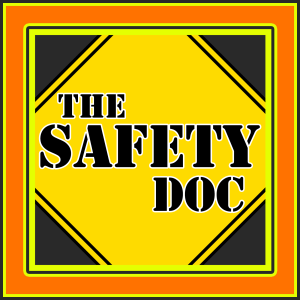To freeze or not to freeze (your credit), that is the question – and with entertaining prose, Dr. Perrodin, helps you measure the thorny considerations that will yield your noble answer in midst of the slings and arrows of outrageous fiscal fortunes. If you have a credit report, there's a good chance that you're one of the 143 million American consumers whose sensitive personal information was exposed in a data breach at Equifax, one of the nation's three major credit agencies. David explains that the agencies are not extensions of the government and how locking credit now is a solid option (in his opinion). WHAT PERSONAL DATA WAS HACKED? Per Seena Gressin, Attorney, Division of Consumer & Business Education, FTC, The Equifax breach lasted from mid-May through July. The hackers accessed people’s names, Social Security numbers, birth dates, addresses and, in some instances, driver’s license numbers. They also stole credit card numbers for about 209,000 people and dispute documents with personal identifying information for about 182,000 people. And they grabbed personal information of people in the UK and Canada too. WHAT ARE CREDIT BUREAUS AND WHY DO THEY EXIST? There are three major credit bureaus: Equifax, Experian and Transunion and they took root across the United States in the roaring 1920s. Credit bureaus were created to help lenders and creditors decide potential customers that were “credit worthy.” However, it was voluntary for businesses and government agencies to “share” individuals’ financial history with the bureaus. ARE THE CREDIT BUREAUS GOVERNMENT AGENCIES? Nope! It might surprise you to learn that none of the credit bureaus are federal agencies. In fact, they have no government affiliations whatsoever! These are private companies that collect information from creditors regarding your credit history. They sell this information to creditors and the data is used to determine if you are “credit worthy.” If you use little credit, meaning you have paid in cash, don’t have a stack of credit cards, or own your house, you might actually receive a subpar credit score as you haven’t “demonstrated” an ability to manage debt. Yes, as insane as that sounds, it’s an accurate summation of the punishment of fiscally conservative minimalists. SHOULD I FREEZE MY CREDIT? Probably. Check with valuepenguin.com for state by state information on how to freeze and thaw your credit and the associated fees. Expect to pay $30 to freeze your credit at the “Big 3” bureaus and you must deal with each on its finicky process to freeze and thaw credit. The benefit to a freeze is that someone won’t be able to take out a loan in your name – your risk for identity fraud drops. DOWNFALL TO FREEZING CREDIT. Most potential employers want to check your credit – so that requires you to thaw it, and then freeze it again – and there’s $60 down the drain. Now, apply for a car loan, and another freeze and thaw cycle. In fact, young job hunters can end up paying hundreds in freeze/law fees. By the way, the default setting by the “Big 3” is to have your credit open. I believe that the default should be to have frozen credit. Also, charging fees each time credit is thawed and the (re)-frozen seems like a scam. Oh, TransUnion’s stock price has increased 75% year-to-date and despite the Equifax fumble, its stock is down less than 8% in 2017. FOLLOW DR. PERRODIN: Twitter @SafetyPhD and subscribe to The Safety Doc YouTube channel & Apple Podcasts RSS feed. SAFETY DOC WEBSITE & BLOG: www.safetyphd.com David will respond to comments & emails. The Safety Doc Podcast is hosted & produced by David Perrodin, PhD. ENDORSEMENTS. Opinions are those of the host & guests and do not reflect positions of The 405 Media or supporters of “The Safety Doc Podcast”. The show adheres to nondiscrimination principles while seeking to bring forward productive discourse & debate on topics relevant to personal or institutional safety. Email David: thesafetydoc@gmail.com
More Episodes
License Plate Readers in Schools | An Added Layer For Campus Security or Rights Violation? | SDP202
 2023-01-10
2023-01-10
 165
165
Perfect Attendance Can Win High School Students A New Car | What Do You Think? | SDP201
 2023-01-03
2023-01-03
 64
64
Bystander Effect | Why Are We Unwilling To Help When Others Are Watching? | SDP200
 2022-12-27
2022-12-27
 75
75
Opioid Emergencies in K-12 Schools | Community and Legal Considerations | SDP199
 2022-12-20
2022-12-20
 63
63
Medical CBD Oil In Schools | Brooke Adams vs. Rincon Valley Union School District | FAPE | SDP198
 2022-12-13
2022-12-13
 54
54
Bank Account Voting System | Transparent Solution to Election Integrity | Guest Lee Jarvis | SDP197
 2022-12-06
2022-12-06
 41
41
Seven School Safety Exercise Objectives That Actually Help Teachers, Police, Fire, and EMS | SDP196
 2022-11-28
2022-11-28
 61
61
The Meteoric Rise of High School Esports | What You Need to Know | Guest Mike Dahle | SDP195
 2022-11-22
2022-11-22
 55
55
The Law of Necessity | Good Samaritan Considerations | Guest Attorney Lisa Linney | SDP194
 2022-11-15
2022-11-15
 44
44
Citizen’s Arrest - What You Should Know | Your Jury Trial Rights | Guest Attorney Legalman | SDP193
 2022-11-11
2022-11-11
 306
306
Should Teachers Be Armed? | High School Trap Teams | Guest Competitive Shooter Bending Ballistics
 2022-10-27
2022-10-27
 74
74
What It Was Like to Present Live School Safety Specials on PBS TV | Never Do This One Thing | SDP191
 2022-10-19
2022-10-19
 45
45
Fitness in Chaotic Times | What Really Motivates Us | Fitness Professional Megan Usui | SDP190
 2022-10-12
2022-10-12
 57
57
School ‘Swatting’ Skyrocketing in America | What Is It? | What Can Be Done to Stop It? | SDP189
 2022-10-04
2022-10-04
 73
73
Peggy The Comfort Pig | Animals in Schools | BOE Policy and ADA Considerations | SDP188
 2022-09-27
2022-09-27
 50
50
I Failed My PhD Dissertation Defense | Priest Prepared Last Rites | SDP187
 2022-09-20
2022-09-20
 72
72
Decision Making Up in the Air | Pilot Graham Wilson | The DECIDE model | SDP186
 2022-09-13
2022-09-13
 68
68
Bill Would Ban Cellphones in Schools | 7 Reasons For and 7 Against Cellphones in Schools | SDP185
 2022-09-06
2022-09-06
 95
95
Lost Person Behavior Facts | 4 Ways to Make it Easier to Be Found | SDP184
 2022-08-30
2022-08-30
 108
108
$50K Bonus for Teachers | Unpacking Educator Free Agency | SDP183
 2022-08-19
2022-08-19
 79
79
Create your
podcast in
minutes
- Full-featured podcast site
- Unlimited storage and bandwidth
- Comprehensive podcast stats
- Distribute to Apple Podcasts, Spotify, and more
- Make money with your podcast
It is Free
You may also like

Mayo Clinic Talks


The Saad Truth with Dr. Saad


The Resilient Mind


The Jordan B. Peterson Podcast


The Mel Robbins Podcast


- Privacy Policy
- Cookie Policy
- Terms of Use
- Consent Preferences
- Copyright © 2015-2024 Podbean.com




 iOS
iOS Android
Android